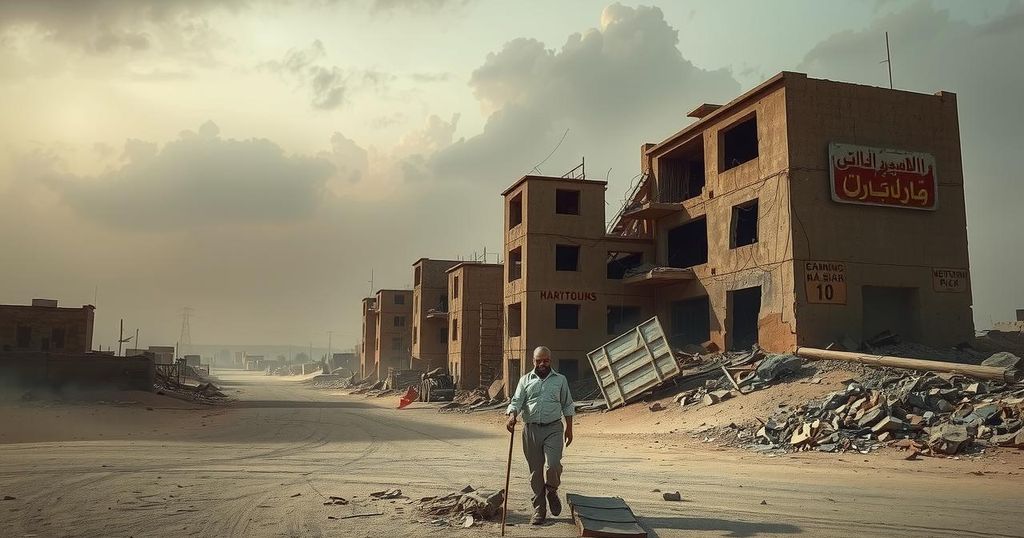Mohamed Hamdan Dagalo, leader of Sudan’s RSF, declared that the conflict with the army is not over, despite recent setbacks in Khartoum. He affirmed a tactical withdrawal but plans a stronger return. Meanwhile, the army consolidates control, rejecting reconciliation with the RSF as the conflict disrupts millions and causes a humanitarian crisis.
Sudan’s paramilitary Rapid Support Forces (RSF) leader, Mohamed Hamdan Dagalo, asserted that the conflict with the army is ongoing, despite recent losses around Khartoum. Following the RSF’s retreat from much of the capital, he released an audio message on Telegram, marking his first statement since the army’s recent offensive. Dagalo admitted to a tactical withdrawal but maintained his intent to reclaim Khartoum with renewed strength.
As the army continues to gain ground, they took control of a crucial market in Omdurman, a city adjacent to Khartoum, previously utilized by RSF for attacks. With the army already dominating most of Omdurman, they appear focused on securing all areas of the capital, which encompasses Khartoum, Omdurman, and Bahri, separated by the River Nile. The RSF still retains some influence in Omdurman, but their position is increasingly precarious.
Army chief Abdel Fattah al-Burhan has ruled out any reconciliation efforts with the RSF, expressing determination to defeat them entirely. The ongoing conflict is rooted in a power struggle between the army and RSF, coinciding with attempts to transition to civilian governance. The violent struggle has devastated parts of Khartoum, displacing over 12 million people and leaving many in dire food insecurity.
Estimations of casualties are challenging, but a previous study indicated that approximately 61,000 deaths may have occurred in the Khartoum state in the first 14 months of fighting. This ongoing war has significantly impacted the socio-political landscape of Sudan, emphasizing the urgent need for resolution and humanitarian aid in the region.
The RSF leader’s statements indicate a persistent conflict with the Sudanese army, suggesting that the power struggle continues unabated. The army’s territorial gains reflect their commitment to securing the capital, leading to widespread suffering among the Sudanese population. Urgent humanitarian intervention is necessary as the conflict has caused extensive displacement and loss of life, underlining the severity of the situation in Sudan.
Original Source: www.usnews.com






